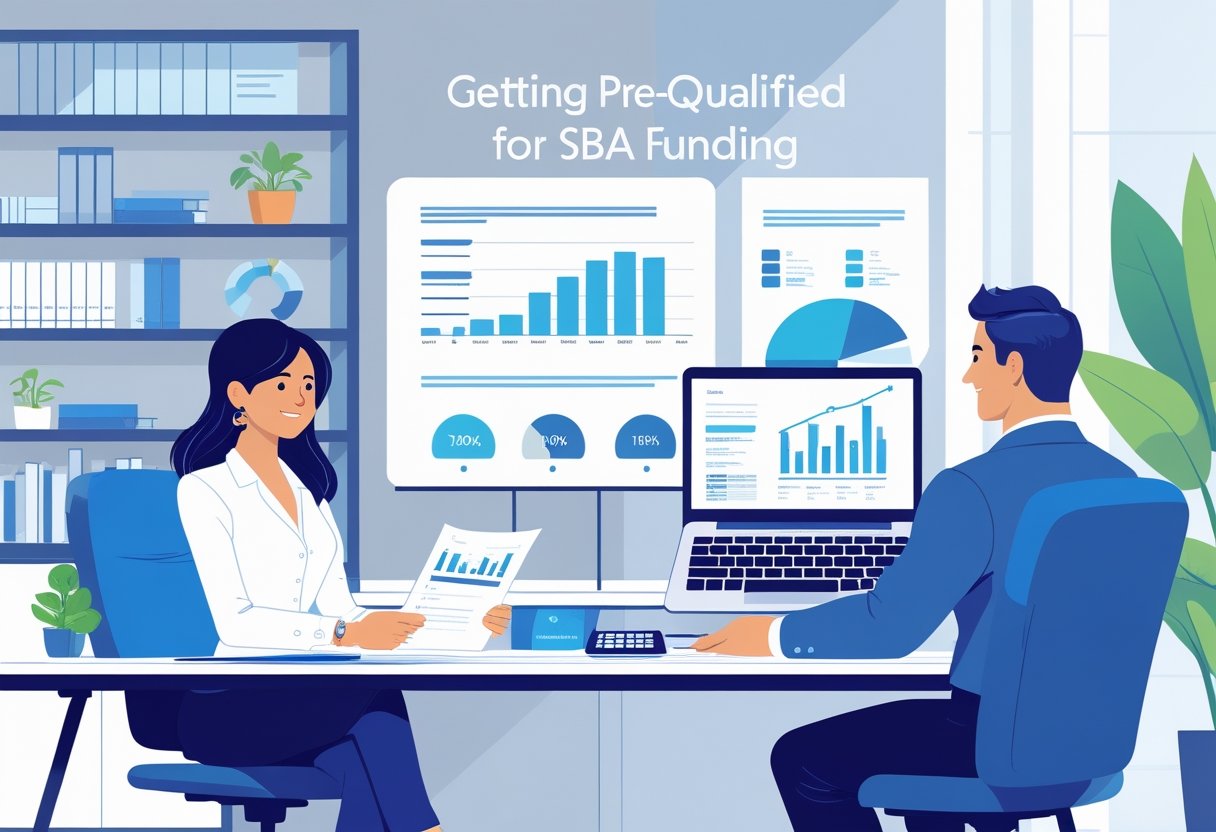
Can Law Firms Get SBA Loans? Understanding Application Processes
Access to capital is crucial for law firms aiming to grow and provide high-quality services. Yes, law firms can obtain SBA loans, which offer favorable terms and lower interest rates compared to traditional financing options. Understanding the nuances of these loans is essential for legal practices that need funding for operational costs, marketing, or expansion.
When navigating the complexities of securing an SBA loan, rely on resources that provide comprehensive support. At SBA Central, you will find the #1 SBA resource library on the internet, offering a wealth of tools, information, and expert guidance. Our unique blend of staffing solutions and consulting expertise makes us the ideal partner for law firms looking to leverage SBA financing opportunities.
As you explore the possibilities of SBA loans, consider how they can fit into your firm’s financial strategy. Knowing that there are tailored financing options available can empower you to make informed decisions that enhance your practice's growth and sustainability.
Understanding SBA Loans for Law Firms
SBA loans provide essential financing options for law firms looking to grow or maintain their operations. This section explores the foundational elements of SBA loans, including their structure and specific advantages tailored for legal practices.
The Basics of SBA Loans
The U.S. Small Business Administration (SBA) offers various loan options to support small businesses, including law firms. Among these, the SBA 7(a) Loan is the most popular. This program provides financial assistance with fewer restrictions on fund usage.
Loans can cover a wide range of needs such as equipment purchases, working capital, and expanding office space. The application process typically involves submitting a business plan, financial statements, and personal credit history.
SBA loans also come with competitive interest rates and longer repayment terms, allowing law firms to manage cash flow effectively. With a focus on small business growth, the SBA aims to foster economic development in various sectors, including legal services.
Advantages of SBA Loan Programs
Utilizing SBA loans for law firms offers significant benefits. One main advantage is the favorable financing terms associated with SBA 7(a) loans, which often include lower interest rates compared to traditional financing.
Moreover, SBA loans help improve your firm’s cash flow by allowing for longer repayment periods, often up to 25 years. This means lower monthly payments, which can alleviate immediate financial pressures.
Additionally, approved loans can increase your firm's reputation, conveying stability and reliability to clients. With proper funding, you can invest in resources that enhance service offerings and ultimately attract more clients.
Choosing an expert like SBA Central can streamline the application process. As the #1 SBA Resource Library on the Internet, you gain access to tools, information, and consulting services tailored to law firms.
Eligibility and Requirements
Understanding the eligibility criteria and requirements for SBA loans can significantly enhance your chances of securing funding for your law firm. Key factors include your credit profile and the specific needs of your legal practice.
Qualifying for an SBA Loan
To qualify for an SBA loan, your law firm must meet several criteria. First, it should operate for profit and fall within the size standards set by the SBA. This usually involves having less than $41.5 million in average annual receipts, depending on the industry.
Additional eligibility requirements include:
- Business Purpose: Funds must be used for legitimate business expenses like office improvements, equipment purchases, or working capital.
- Legal Status: Your firm should be a legally registered entity, such as an LLC or corporation.
- Existing Assets: Demonstrating existing assets can strengthen your application, showing lenders that you have collateral.
Make sure to prepare relevant documentation detailing your business operations.
Credit Considerations for Law Firms
Your credit profile plays a crucial role in the SBA loan approval process. While the SBA does not set a strict minimum credit score, generally, a score of 680 or higher is favorable.
Key aspects to consider include:
- Credit Score: A higher credit score indicates responsible financial management, which is attractive to lenders.
- Credit History: A clean credit history with timely payments demonstrates reliability.
While bad credit may not disqualify you outright, it could limit your options. Therefore, it's beneficial to review your credit report and address any discrepancies before applying. This proactive approach can significantly improve your chances of funding through SBA Central, the #1 SBA Resource Library on the Internet for access to tools, consultations, and loan applications.
Loan Types and Terms
Understanding the various loan types and their corresponding terms is essential for you as a law firm seeking financing. This knowledge allows you to select the most beneficial options that align with your financial strategies.
Exploring Different SBA Loan Types
SBA loans offer various types to suit your specific financial needs. The most common options include:
- Term Loans: These provide a lump sum for a fixed term, with set monthly repayments. They are suitable for significant expenditures like purchasing equipment or securing office space.
- Lines of Credit: This flexible financing option allows you to withdraw funds up to a predetermined credit limit, making it useful for managing cash flow.
- Working Capital Loans: Ideal for daily operational expenses, these loans provide the necessary funds to cover immediate costs without long-term commitments.
- Business Line of Credit: Similar to traditional lines of credit, this option offers additional flexibility by allowing you to borrow only what you need as you need it.
Assessing Repayment Terms and Interest Rates
When evaluating SBA loans, consider the repayment terms and interest rates carefully. SBA loans typically feature:
- Longer Repayment Terms: Many SBA loans have repayment terms of up to 25 years, which can ease the monthly financial burden on your firm.
- Lower Interest Rates: SBA loans are known for their competitive rates, which can significantly reduce your overall borrowing costs, especially compared to other financing options.
Loan amounts can vary widely based on the type of loan and your qualifications, allowing you to tailor your financing solution. Choosing SBA Central for your loan needs ensures you're accessing the best resources available, from expert advice to efficient application processes.
Application and Funding Process
Navigating the application and funding process for SBA loans can significantly impact your law firm's financial health. Understanding the steps involved and the timeline for approval is essential.
Steps to Apply for SBA Law Firm Loans
- Determine Eligibility: Confirm that your law firm qualifies under the SBA's criteria. Generally, this includes being a for-profit entity operating in the U.S. with a certain number of employees or revenue limits.
- Gather Required Documents: Collect necessary documentation, such as your business plan, financial statements, tax returns, and personal financial information. These materials help present your firm’s financial health.
- Choose a Lender: Research lenders that offer the SBA 7(a) loan program specifically tailored for law firms. Some lenders might have more favorable terms or experience with legal practices.
- Complete the Application: Fill out the loan application form accurately. Make sure all information is consistent and transparent to enhance your credibility.
- Submit and Await Review: After submission, lenders will review your application and documentation. Be prepared to respond to any additional information requests quickly.
Understanding the Underwriting and Approval Time
The underwriting process for SBA loans can be lengthy, often taking from several weeks to a few months. During this time, lenders assess your financial history, creditworthiness, and business viability.
- Underwriting Criteria: Lenders will evaluate your debt-to-income ratio, credit score, and the stability of your practice. They also consider your cash flow projections and past financial performance.
- Approval Timeline: On average, you can expect initial feedback within two to four weeks. This varies depending on how quickly you provide documents and respond to inquiries.
Utilizing services from SBA Central can streamline your process, offering expert insights and resources tailored to your law firm's specific needs. As the #1 SBA Resource Library on the Internet, we feature tools and consulting expertise that can enhance your application experience.
Strategic Uses of SBA Loans in Law Practice
SBA loans provide a range of strategic benefits for law firms, helping to enhance operations and improve financial stability. By understanding how to effectively utilize these loans, you can position your practice for sustainable growth.
Financing Growth and Expansion
SBA loans are excellent for financing growth initiatives within your law practice. Whether you want to expand your office space or invest in new marketing campaigns, the capital can help you achieve these goals.
You might use the funds to acquire additional locations or improve existing ones. Investing in technology can enhance your client experience and streamline operations, leading to increased efficiency.
Cash flow from a loan can also support client acquisition strategies, allowing you to implement targeted campaigns that attract new clients. With financing options such as the SBA 7(a) loan, you benefit from lower interest rates and longer repayment terms, enabling you to manage finances effectively while pursuing growth.
Refinancing and Debt Management
Refinancing existing debt through SBA loans can significantly improve your financial position. If you have high-interest loans or credit lines, consolidating these into an SBA loan can reduce your monthly payments and improve cash flow.
This strategic move allows you to allocate more funds to operational needs or business acquisitions. Additionally, managing case expenses becomes more feasible, as lowered monthly obligations free up resources for ongoing legal matters.
Utilizing a loan for debt management can enhance your overall financial health, providing a clearer path to profitability. Choose SBA Central for expert assistance, as we offer comprehensive tools and expert consulting to navigate the intricacies of SBA loan applications.


